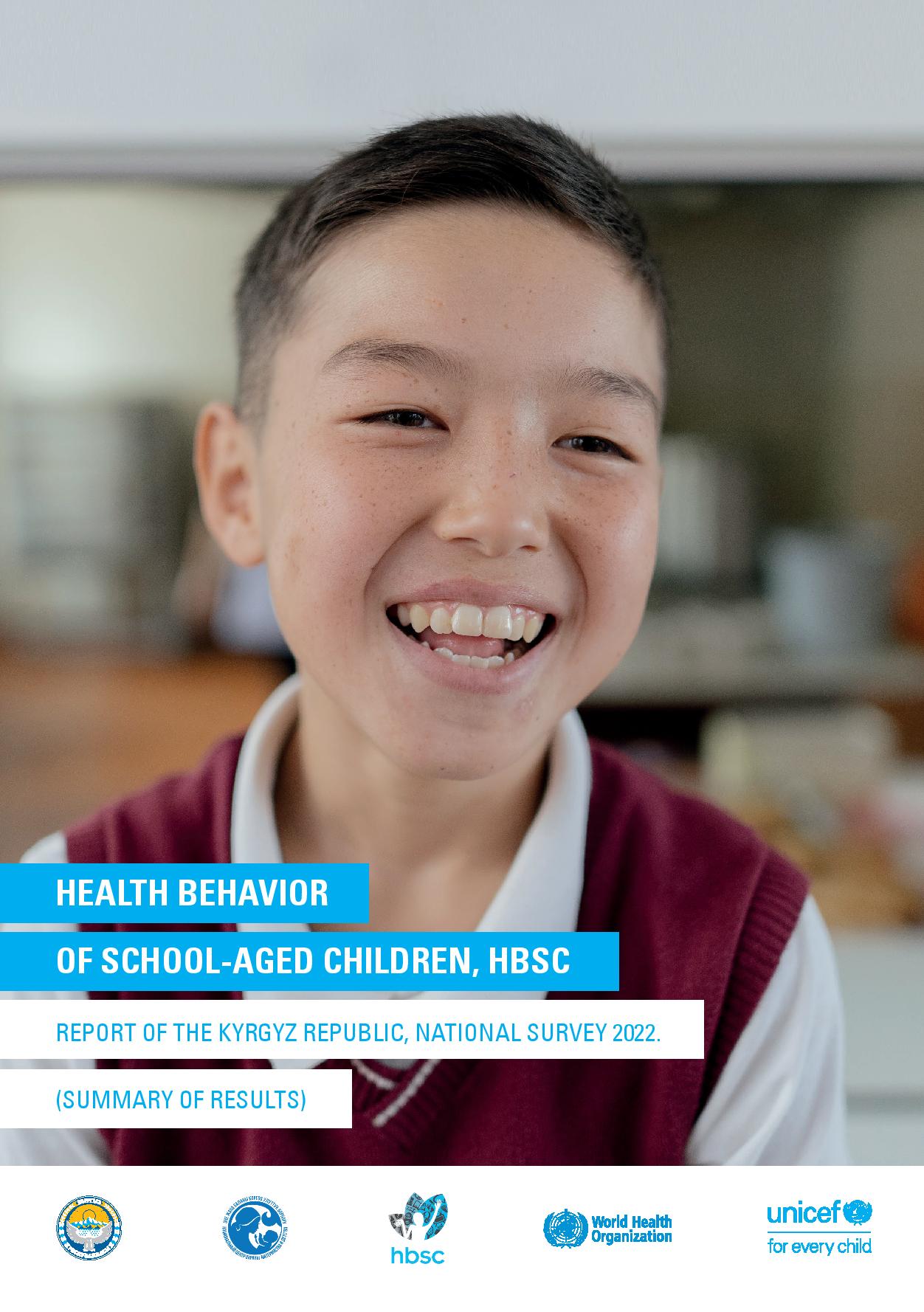The first HBSC study in Kyrgyzstan shines a light on the health, well-being and social contexts of the nation’s youth, with worrying results for mental health.
The first HBSC survey in Kyrgyzstan was conducted by the National Centre of Maternity and Childhood Care and supported by the World Health Organization and the United Nations Children’s Fund to get a complete picture of the health and well-being of the young people and their social contexts.
The survey covered over 9500 school children aged 11, 13 and 15 in over 170 schools. The survey covered eating behaviours and oral health; physical activity; overweight, underweight and body image; alcohol and tobacco consumption; bullying and violence; injuries; social and mental well-being; school experience; and social media behaviour. The data provides valuable insights into age and gender differences in health behaviours that have important practical implications for social and health interventions.
Findings highlight worrying trends
The study showed that around 32% of the children surveyed reported being victims of bullying, and the proportion of adolescents involved in bullying other children was 28%. Bullying can affect adolescents’ physical and mental health and lead to low engagement in learning, anxiety, post-traumatic stress and lack of self-esteem.
Cyberbullying was found to be less common than traditional bullying, but the overall rates were still concerning, with 13% of adolescents reporting cyberbullying others and 14% reporting being victims of cyberbullying.
While around half of those surveyed reported receiving significant peer support, 34% of respondents said they had felt sad nearly every day for two or more consecutive weeks in the past 12 months.
Overall, 16% of respondents reported that they had suicidal thoughts during the previous 12 months, while 12% said that they had planned to attempt suicide. There were significant gender and age differences for suicidal thoughts and planning, with the rates increasing with age for girls and decreasing with age for boys.
A call to action: investing in the second decade
The results of the first HBSC study in Kyrgyzstan have revealed concerning trends in the health and well-being of the nation’s youth. The high rates of bullying, cyberbullying, and suicidal thoughts and planning are alarming and require urgent attention. Investing in adolescent health and well-being is crucial to protect and promote their health and well-being.
It is essential for governments, non-governmental organizations, and individuals to increase attention, investment, and action towards adolescent health and well-being. Health and education policies and programs must address the root causes of bullying and cyberbullying, provide mental health support, and promote healthy lifestyles, including physical activity and healthy eating.
Parents, teachers, and peers also play a crucial role in supporting adolescents’ well-being by creating a safe and supportive environment, promoting positive behaviours and attitudes, and providing emotional support.
“Investing in adolescent well-being brings many dividends in terms of health and economic benefits to adolescents now, in their future lives and the next generation, thus increasing human capital. Coordinated investments in health and education that bring complementary benefits,” said Dr Shahin Huseynov, Special Representative of the WHO Regional Director in the Kyrgyz Republic and ad interim Head of Office.
